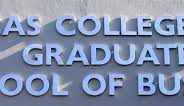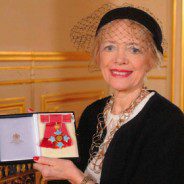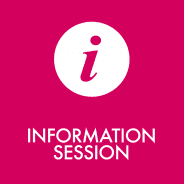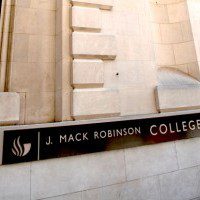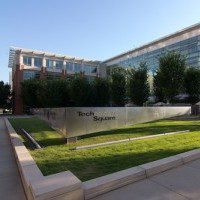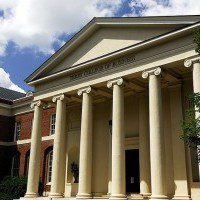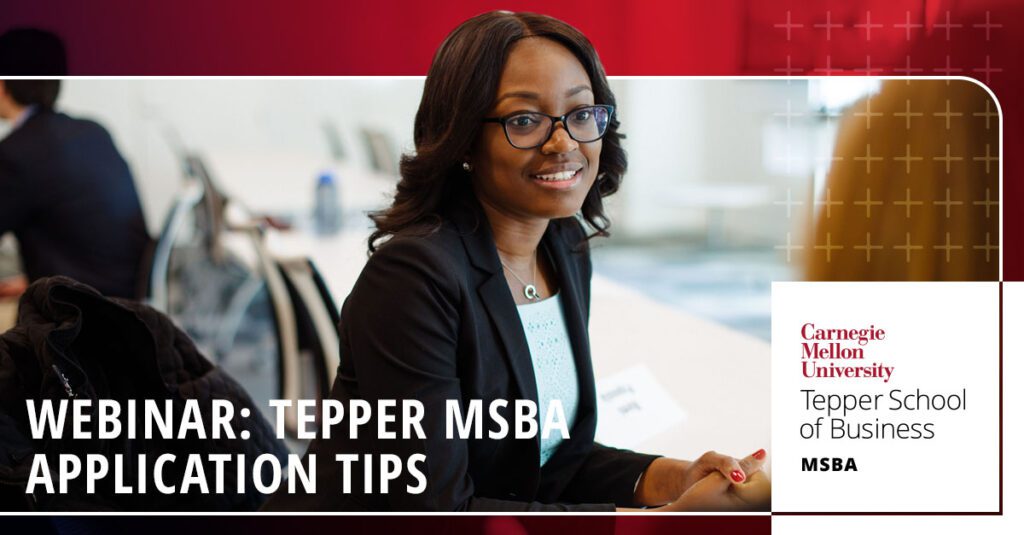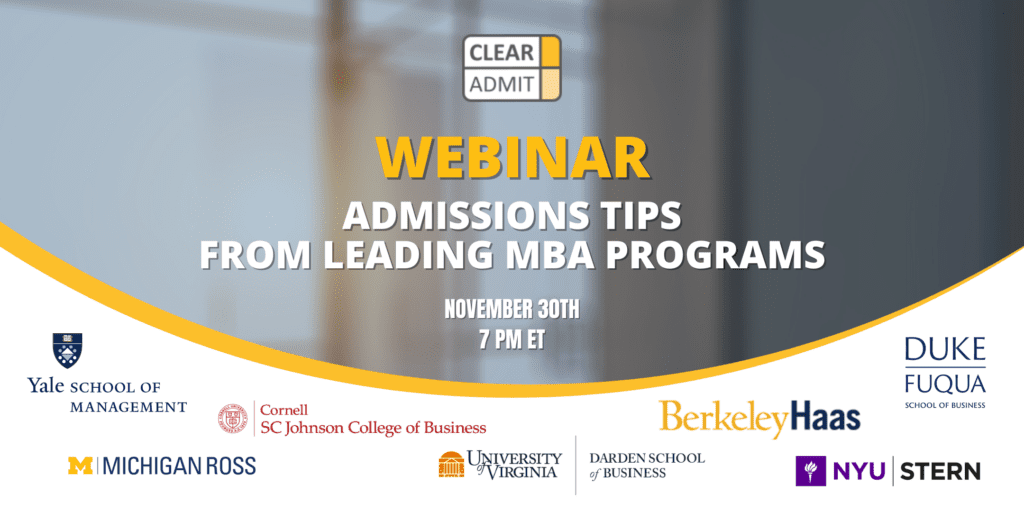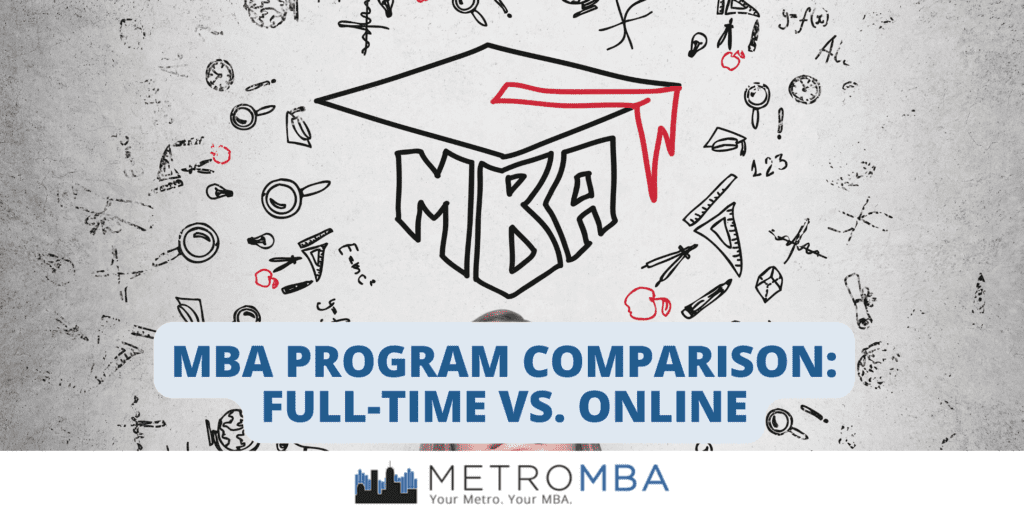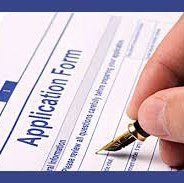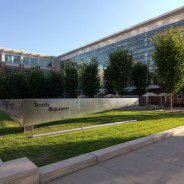August 2021 – March 15, 2022
Search results for :
Lucas Holds MBA Information Session
The Lucas Graduate School of Business will be hosting an information session for its MBA programs. The event will be held March 5 at 6 p.m. Prospective students can attend the information session at the San Jose State University campus or online. During the event, prospective students can learn about the Early Career MBA, MBA for Professionals and the MBA-One programs.
The Early Career MBA program is designed for students who have less than five years or no professional work experience. Classes for the Early Career MBA program are typically held in the evenings and on Saturdays over eight-week sessions.
Cranfield Professor Awarded CBE For Contributions To Gender Equality
Cranfield University School of Management’s Professor Susan Vinnicombe was honoured at Windsor Castle by Her Majesty the Queen for services to gender equality.
Professor Vinnicombe was presented with her CBE (Commander of the Order of the British Empire) by Queen Elizabeth at a prestigious ceremony marking her significant contribution to increasing gender diversity on corporate boards over the past 15 years.
Continue reading…
Rutgers-Camden Holds MBA Info Session
Rutgers School of Business- Camden, will holding an upcoming information session for its MBA program. The event will be held Feb. 24 at the Rutgers- Camden campus in the Business and Science building. The information session will be held from 5:30 to 7:00 p.m. The event is open to all prospective MBA students.
The MBA program at the Rutgers School of Business–Camden is designed to provide its students with a broad professional education in business administration. The program aims to prepare students for the demands of management careers. The Rutgers–Camden MBA program offers classes in the evenings and on Saturdays.
Babson ranked No. 1 in Entrepreneurship by Financial Times
Babson College has been ranked as the top graduate program for entrepreneurship in the world, by the 2015 Financial Times Global MBA rankings. Babson was ranked no. 1 in entrepreneurship, ahead of Stanford, MIT, UC Berkeley and Oxford. Babson is also ranked no. 38 among U.S. schools in the overall full-time global MBA program evaluation by the Financial Times. It is also ranked at no. 73 overall.
Babson is ranked no. 3 among Massachusetts business programs, behind Harvard and MIT.The Financial Times ranks Babson among the top programs in the following criteria:
MBA (Full-Time/Part-Time)
Texas Southern MBA (Full-Time/Part-Time) Program Structure
The Texas Southern MBA program provides a general management education to students who are looking to advance their current careers in business management. Students are admitted to the MBA program in the fall or summer semester. The program consists of 36 credit hours. These hours consist of core (30 credit hours) and elective classes (6 credit hours), completed over a two-year period for the full-time program. Part-time program students can complete their MBA degree over a flexible amount of time, depending on their availability to complete courses. All students complete courses over the fall, spring, and summer semesters.
Curriculum
Students have the option to either complete the general MBA program, which provides a solid management curriculum, or pursue an MBA with a concentration in Health Care Administration, Accounting or Management Information Systems. All programs require students to complete the same core curriculum that provides the fundamental knowledge required for success in the business management field. The other hours of coursework consist of electives that students can choose to tailor towards their interests and career goals.
Students who are pursuing a concentration in Health Care Administration must complete the final six academic hours in the Health Care Administration field. These courses are taught in conjunction with the College of Pharmacy and Health Sciences at Texas Southern University. Those students who are pursuing a concentration in Accounting or Management Information Systems must complete the required MBA curriculum requirements and the concentration required courses.
The Management Information Systems concentration also offers students a more detailed curriculum in the concentration by following either the Business Intelligence Track or the E-Commerce Track.
Career Statistics
The average starting salary for recent Texas Southern MBA graduates is $84,580.
Tuition, Scholarships, and Financial Aid
The cost for the Texas Southern MBA at Jones is about $754.41 per credit hour for in-state residents. Out-of-state students pay about $1,113.41 per credit hour. Other fees such as room and board, transportation, books and other personal expenses are not factored in the cost of the program.
Texas Southern University accepts federal student loans, private loans, federal grants, scholarships and payment covered by sponsoring companies and employers. There are also scholarships available for qualifying students. These scholarships are funded through both the university and private donors.
Admissions
In order to be considered for admission, prospective students must submit a completed application and all supporting documents. Students must also be able to provide evidence of a baccalaureate degree from an accredited institution. Supporting documents necessary for applications are: official transcripts from undergraduate work, GMAT scores (waived in 2021 due to the current pandemic), a two-page essay that covers career goals, past accomplishments and disappointments and the lessons learned from these, as well as two letters of recommendation, a current resume and a $50 application fee.
Non-native English speaking international applicants must submit an affidavit of support, transcripts, and either a TOEFL score of 79 for the online test, 550 on the paper test, or 213 on the computer test. Students opting out of the TOEFL must take the IELTS with a minimum score of 6.0.
MBA program applications are received by the Graduate School and forwarded to the Jesse H. Jones School of Business for review by a faculty committee. The faculty committee makes the recommendation for admission and the application is then sent back to the Graduate School.
The deadline dates are as follows:
Fall 2021 – July 15, 2021
Summer 2021 – May 15, 2021
Jesse H. Jones School of Business – Texas Southern University
History
The Jesse H. Jones School of Business, founded in 1955, is part of Texas Southern University, one of the country’s largest Historically Black Colleges and Universities. The University was originally established in 1927 and was renamed in 1951 as Texas Southern University. The Jesse H. Jones School was founded in response to a growing interest in business among students in the city of Houston.
The Jones School is made up of three separate departments: accounting, finance and economics, and business administration. The school offers five undergraduate and four graduate degrees. The school is accredited by AACSB International.
Location
The Jones School of Business at Texas Southern University is located in the heart of Houston, Texas. The university stretches across a 150-acre campus in Houston’s Third Ward.
The school campus is located roughly 25 miles from the George Bush Intercontinental Airport.
Facilities
The Jones School is housed in a modern building that gives students access to advanced technological resources. The school also houses four Outreach Centers for students and the community. The Economic Development Center provides community businesses with education, training and technical assistants to its employees. The Gerald B. Smith Center for Entrepreneurship & Executive Development aims to increase the focus on entrepreneurship and to develop academic, student-focused, and community initiatives to give practical focus to the coursework.
The school’s JP Morgan Chase Center for Financial Education is dedicated to providing teaching research and community outreach activities to help promote lifelong financial education. In particular, it helps community members to gain knowledge of personal finances, money management, credit awareness and estate planning.
Jones School of Business students have access to the Business Library. The business library is located on the fifth floor of the Robert J. Terry Library. The business library has over 52,000 volumes and more than 300 serials. The library also houses extensive files of corporate financial reports and business. It also features more than 300 databases for students that provide a broad collection of scholarly journals, e-books, videos, newspapers and other reference materials. Students also have access to libraries at other participating state universities and colleges and Houston public libraries.
Jones students have the opportunity to take advantage of the Career Planning and Placement Center at Texas Southern. The Career Center provides resume and career counseling, skill and career assessments, developmental workshops and seminars as well as other career planning programs and events like career and internship fairs. The Career Planning and Placement Center also gives students access to internships available as well as on-campus interviews and job databases for full-time employment.
Faculty
The faculty at Texas Southern University is active in all academic aspects of its students’ lives. Faculty members are responsible for the approval of degrees, curriculum planning, determining the requirements for the degree programs and establishing academic regulation. Faculty members are also responsible for the recommendation of candidates for appointment to the faculty, as well as those faculty members appointed for tenure, promotions and the evaluation of academic administrators. Women make up about 47 percent of the faculty at Texas Southern University as a whole.
There are currently 32 faculty members employed in the graduate programs at JHJ.
Student Body
The most recent class at the Jesse H. Jones School of Business featured 173 graduate students. In that same year, 78 percent of students across all master’s identified as African American, and nearly 60 percent identified female. Three percent identified as Hispanic, while 4 percent identified as white and 15 percent identified as another demographic.
MBA Degree Offerings
The Jesse H. Jones School of Business at Texas Southern University offers full-time, part-time, and Executive MBA program options. The EMBA program is a distance, online program. There is also a dual MBA/JD option.
When to Get an MBA?
When applying to an MBA program, what you’ve accomplished in your professional career matters a great deal. Unlike virtually every other graduate program, including those in law, medicine, engineering, and so on, the most competitive MBA candidates (and the vast majority) don’t go directly from undergrad to an MBA program. First, they join the workforce. Continue reading…
Cal State LA Holds MBA Information Session
The College of Business and Economics at California State University, Los Angeles will be hosting an MBA information session. The event will be held Feb. 26 at the Student Service Center at the Cal State, LA campus. The information session will begin at 5 p.m. and last for one hour. During the event, prospective students will have the opportunity to learn more about the MBA program and the benefits of an MBA for your career.
Cal State L.A.’s MBA program is designed to develop general managers capable of working in an increasingly multicultural and global environment. The MBA program is a 48-credit program that offers professional preparation for management positions. The MBA is a broad, management-oriented degree that provides concentration in seven options: Accounting, Business Economics, Finance, Information Systems, International Business, Management and Marketing.
Atlanta MBA Programs that Don’t Require Work Experience

It’s true that most traditional full-time MBA programs look for candidates who have demonstrated leadership and success in professional positions. But, just as many MBA programs don’t require the GRE or GMAT exams, many business schools are willing to consider applicants with limited or no prior professional experience.
Here is a list of Atlanta MBA programs that don’t require work experience. Click on a program profile below to see if you meet the eligibility requirements for that program.
Want to stay up-to-date on all things MBA & Young Professional? Sign up for the MetroMBA Newsletter today!
Full-Time MBA
Mercer University Full-Time MBA Program Structure
The Mercer University full-time MBA program at the Stetson School of Business has a duration of one year and runs on a cohort model. Students complete the entire program with a small group of peers, allowing each group of classmates to get to know one another better. The accelerated version of the program allows students to complete their MBA in 10-12 months. No work experience is required for this program, meaning it can be a good fit for recent college grads and adults looking to start a new career.
Curriculum
The Mercer University full-time MBA encompasses 36 credit hours or 45 hours including the Business Foundations Module. For students who have not received their undergraduate business degree the Business Foundations Module, which comprises economics, accounting, finance and business statistics courses, can be taken. The foundation course takes place in the summer over a four week period, with classes being held online.
Twenty-four credit hours are dedicated to core classes and 12 credits are for concentration courses. Concentrations include entrepreneurship and innovation, finance, global business, health care management, integrative business, managing people and change, and marketing.
Class Profile
On average, students in the full-time MBA program are 26-years old when they begin the program and have an average of three years of professional work experience.
Tuition, Scholarships, and Financial Aid
For Mercer University full-time MBA students, tuition costs $885 per credit hour. With a total of 36 credits, tuition for the entire program costs $31,860. Additional costs include a technology fee.
Students at Mercer can visit the university’s Office of Student Financial Planning to receive updated financial assistance information, including information on federal student loan programs.
Admissions
Applicants to the Mercer University full-time MBA program must have completed a four-year degree or its equivalent for admissions. As mentioned, Mercer’s full-time MBA does not require work experience for admission to the program. New cohorts start classes in August.
Applicants must complete the online application and submit a current résumé, along with official GMAT scores and official transcript(s) from each of the colleges or universities attended. A nonrefundable $50 application fee is required.
Applicants who are not native to the U.S., as well as U.S. citizens who graduated from a university outside of the U.S., will need to submit any education credentials to an independent evaluation agency, which will help determine what the U.S. equivalent is to their international credits. Non-native applicants are also required to take the TOEFL or IELTS if their primary language is not English. This requirement is waived for individuals who have taken college-level English composition and and earned a grade of “C” or higher, or for those who have already attended another college or university in the U.S.
Application Deadlines
Spring 2022:
- Priority Deadline: November 1, 2021
- Final Deadline: December 1, 2021
Summer 2022:
- Priority Deadline: March 1, 2022
- Final Deadline: April1, 2022
Executive MBA
University of Georgia Executive MBA Program Structure
The University of Georgia Executive MBA program at the Terry College of Business is an 18-month program that offers mid-to-senior-level managers an opportunity to develop their leadership and international business skills as well as expanding their network of contacts over the course of 10 comprehensive modules. The program is broken down into weekend interaction sessions, distance learning and residency weeks.
Curriculum
The University of Georgia Executive MBA program consists of 48 credit hours (16 courses) taken over an 18-month period. The program is broken up in two week-long residencies at UGA’s Athens campus, 21 weekend sessions at the Atlanta campus and a 12-day international residency. Courses are delivered by a combination of in-class instruction and distance learning avenues. The EMBA focuses on strategic thinking and management skills to further one’s career.
Students participate in a cohort model and are personally assigned a professional executive mentor.
Executive MBA Rankings
• The Economist: 28
Class Profile
The typical University of Georgia Executive MBA class is approximately 76 percent male and 24 percent female. On average, students are 41-years old when they begin the program and have 17 years of professional experience. The current average experience of students with management is eight years. The average undergraduate GPA of Executive MBA students is 3.13.
Career Statistics
The average starting salary of Terry EMBA grads is currently $104,464.
Tuition, Scholarships, and Financial Aid
The University of Georgia Executive MBA total degree tuition cost is $77,000 for both Georgia and non-Georgia residents. The cost of the program includes University of Georgia tuition and fees, books and course materials, executive coaching, leadership assessments, career management consulting and graduation apparel.
If the student’s company contributes to the cost of the EMBA program, UGA will bill the student’s company directly or provide tuition receipts or grade letters for company reimbursement.
Students in the executive MBA program can use services offered at the Office of Student Financial Aid to help capitalize on federal and/or private student loan programs.
The executive MBA program offers a limited number of scholarships for select candidates. The awards offered and requirements change each year.
Admissions
To apply to the University of Georgia Executive MBA, applicants must have a minimum of five years of work experience, a résumé showing the amount of responsibility and management experience the applicant has, two letters of recommendation delivered online, official transcripts from any institution attended for college credit, a personal essay of 500-750 words, GMAT or GRE scores and TOEFL or IELTS scores for any non-native English speaker. A nonrefundable application fee of $100 is required.
GMAT/GRE scores may be waived for select candidates.
Applications for admission to the Executive MBA are on a rolling admissions basis. Currently accepting applications for the class entering Fall (September) 2022. The formal application deadline is June 30, 2022, though it is recommended that you apply early (April 1, 2022) to effectively compete for admission and program scholarship opportunities. Will continue to accept and review applications until the class is full.
CSULB Holds MBA Program Information Session
California State University, Long Beach will be hosting an information session for its Saturday MBA program, Daytime Accelerated MBA program and Evening MBA. The event will be held Feb. 5 from 5:30 to 6:30 p.m. The location of the information session will be announced at a later date. The event is free for all prospective students to attend.
The Evening MBA is a self-paced program where students determine both the number of classes taken each term and the sequence of their classes. The program is ideal for students who work full-time and can only dedicate evenings to an MBA program. Each class meets one night per week. The program can be completed in two to four years.
Sloan Hosts EMBA Application Tips Webinar
MIT Sloan School of Management will be hosting an MIT Executive MBA Application Tips Webinar. The webinar will be held Feb. 3 at 7 p.m. Olivia Linder, head of the MIT Executive MBA admissions process. The event is open to all prospective Executive MBA students for the program beginning in October 2015.
This webinar event is an interactive Q&A session. Webinar participants will have the opportunity to ask members of the MIT Sloan Executive Admissions Committee questions about the best way to put together a strong and successful application for the MIT Sloan Executive MBA program that will begin in October.
Professional MBA
University of Georgia Professional MBA Program Structure
The University of Georgia Professional MBA at the Terry College of Business is a part-time program that can be completed in 23 months through evening classes and distance learning. Classes can be taken at the Atlanta campus and the UGA Gwinnett campus. The program is structured into eight modules, each spanning 12 weeks.
Curriculum
The University of Georgia Professional MBA program is comprised of 48 credits, 12 required courses and four electives. The program focuses on the theory and the practice of the foundations of business, leadership and strategy. The professional MBA is broken down into eight 12-week modules consisting of two classes each. Each class is made up of seven in-person classes, three distance learning weeks, pre-reading and a final project or exam. An option of an international residency is also available.
Part-Time MBA Rankings
• U.S. News & World Report: 52 (tie)
Class Profile
The typical University of Georgia Professional MBA class is approximately 64 percent male and 36 percent female. On average, students are 30-years old when they begin the program and have around seven years of professional experience. The average GMAT and GPA earned by full-time students are 558 and 3.14, respectively.
Career Statistics
The average starting salary of Professional MBA grads from the Terry College of Business is $101,223.
Tuition, Scholarships, and Financial Aid
The University of Georgia Professional MBA degree tuition cost is $56,400 for residents of Georgia. For non-residents, tuition for one year is $72,000. The cost of the program includes University of Georgia tuition and fees, career services, professional development workshops, networking events and parking.
Students in the Professional MBA program can use services offered at the Office of Student Financial Aid to help capitalize on federal and/or private student loan programs.
The Professional MBA program offers some merit-based scholarships for students based on academic achievement.
Admissions
The guidelines for applying for the University of Georgia Professional MBA program are largely the same as the full-time program guidelines. Along with a minimum of two years of work experience, applicants must submit a one-page résumé detailing career growth, two letters of recommendation, a personal essay, official transcripts from any institution attended for college credit, GMAT or GRE scores, TOEFL or IELTS scores for any non-native English speaker and nonrefundable application fee of $100.
A GMAT/GRE waiver may be available for select applicants.
Applications for the University of Georgia Professional MBA at the Terry College of Business are reviewed on a rolling basis.
Application Deadline
May 30, 2022
for class entering Fall 2022
The application for Fall 2022 will be available October 2021.
Full-Time MBA
University of Georgia Full-Time MBA Program Structure
The University of Georgia full-time MBA program at the Terry College of Business is a two-year program. The program begins with an orientation/pre-term that lasts one week in August. Small classes are taught by highly qualified professors and focus on relevant topics and group projects that prepare students for current day business problems.
Curriculum
The University of Georgia full-time MBA program encompasses 60 credits (30 core credits and 30 elective credits) over a two-year period. Students are broken down into small class sizes where they will focus on learning the basics of business as well as how to work with and manage a team. The program offers concentrations in 12 areas: business analytics, consulting, entrepreneurship, finance, fintech, marketing, operations management, human resource management, healthcare management, real estate, social innovation, and risk management.
The full-time MBA program covers fundamental business topics such as accounting, finance, marketing, business microeconomics and macroeconomics, statistics, operations, management information systems, strategy, organizational behavior and legal issues in business. Students must spend part of their final year participating in community service and have the opportunity of participating in an international residency.
Full-Time MBA Rankings
• U.S. News & World Report: 33
• Bloomberg: 44
• Forbes: 48
• Financial Times: 87
• The Economist: 64
Class Profile
The typical University of Georgia full-time MBA class is approximately 65 percent male and 35 percent female. About 5 percent are of international status. On average, students are 27-years old when they begin the program and have about 3.6 years of professional experience. The average GMAT and GPA earned by full-time students is 672 and 3.42, respectively. The average GRE is 311.
Career Statistics
About ninety-two percent of Terry full-time MBA students accepted a job offer within six months of graduating, with an average starting salary near $112,396. All students in the program are expected to undertake internships while completing their degree. Twenty-one percent of students accepted consulting roles, another 21 percent took on finance/accounting roles after graduation. Marketing and general management positions each claimed 17 percent of graduates, followed by operations at 8 percent.
Tuition, Scholarships, and Financial Aid
The University of Georgia full-time MBA degree tuition is $15,868 per year, including student fees, for residents of Georgia. For non-residents, tuition for one year is $34,896, including student fees.
Terry College of Business awards approximately one-third of its students with graduate assistantships to help afford the cost of their programs. Students with assistantships have their tuitions reduced to $25 a semester, get 40 percent of their student health insurance premiums paid by UGS and receive a monthly stipend for working 13 hours per week in the Terry College of Business.
Terry awards students with scholarships as well. The Terry MBA Leadership Scholarship is given out during the spring semester, ranging from $1,000 to $20,000 annually, to a student who has shown promising leadership skills. Other scholarships are available as well.
Need-based financial assistance is offered to students. The UGA Office of Student Financial Aid helps students by outlining the application process and provides detailed FAQ to answer common questions.
Admissions
To apply to the full-time MBA program, applicants must complete the online application form, submit a one-page résumé, two professional references, unofficial copies of transcripts from any institution attended for college credit, self-reported GMAT or GRE scores, self-reported TOEFL or IELTS scores for any non-native English speaker, one required essay and an application fee of $100. Terry’s full-time MBA offers an application fee waiver for U.S. military personnel.
At least two years of professional experience is advised before enrolling in the program, but it is not strictly suggested.
Application deadlines are as follows:
Application deadlines are as follows:
Round |
Application Due |
Decisions Issued |
| Round 1 | October 10, 2021 – 11:59 PM EST | December 1, 2021 |
| Round 2 Recommended last deadline for merit-based scholarships and assistantships |
January 10, 2022 – 11:59 PM EST | March 20, 2022 |
| Round 3 Final deadline for international students |
March 15, 2022 – 11:59 PM EST | May 5, 2022 |
| Round 4 Final deadline for all applicants, including dual degree programs |
June 1, 2022 – 11:59 PM EST | June 20, 2022 |
Full-Time MBA
The Georgia Tech Full-Time MBA Program Structure
The Georgia Tech full-time MBA program at the Scheller College of Business is designed to be undertaken in two years. It involves three main components: 12 core courses (21 semester hours), an optional summer internship, and 11 electives (33 semester hours).
Curriculum
The Georgia Tech full-time MBA program requires 12 core courses that cover business fundamentals. The majority of core classes take place in the first semester of the 22-month program, with the majority of electives taking place during the second year. With core courses out of the way, students in their second years can focus more on electives chosen to fit particular interests, except for one required international business course that enables global business competency to be developed; elective courses span fields including accounting, business analytics, entrepreneurship, sustainability, and strategic management.
Full-Time MBA Rankings
• U.S. News & World Report: 27
• Bloomberg: 24
• Forbes: 28
• Financial Times: 62
• The Economist: 31
Class Profile
Currently, 85 students are enrolled in the Georgia Tech full-time MBA program. New entrants, on average, join the program with an average GMAT score of 681 and five years of previous professional work experience.
About 17 percent of the class is of minority status and over 22 percent come from outside the U.S. The majority of the students in the program are male, at 60 percent.
Career Statistics
Roughly 96 percent of the most recent graduating class was employed within three months of graduation. The average base salary of Georgia Tech full-time MBA grads is $117,492. The average signing bonus received was $28,202.
Tuition, Scholarships, and Financial Aid
Georgia Tech full-time MBA students can expect to pay a total of about $31,702 a year (for Georgia residents) or $43,146 a year (for out-of-state residents). Financial assistance is available in the form of federal loans, graduate assistantships, and a limited number of fellowships.
Admissions
To apply to the Georgia Tech full-time MBA program, applicants must submit a completed application form, transcripts from all degree-granting and non-degree-granting institutions attended and two letters of recommendation. The school also requires applicants to complete one essay about their leadership experiences and goals, with the option to complete a second essay.
Previous work experience is not explicitly required to enroll in the program, but the school does advise applicants to have at least two years of experience prior to applying.
Applicants must also send in their GMAT or GRE scores and pay a nonrefundable $75 application fee. Non-native English speakers are required to send in TOEFL scores, although this requirement may be waived by applicants who have completed at least one year of university-level study in a country where English is the sole official language. Admissions interviews are also required and only scheduled by invitation.
Application deadlines are as follows:
Fall 2022 Start Application Deadlines
First day of classes will be August 22, 2022 preceded by a mandatory two-week Orientation program.
Round |
Application Deadline |
Interviews** |
Decision Notification |
Deposit Deadline |
|---|---|---|---|---|
1 |
||||
2* |
||||
3 |
||||
4 |
Scheller College of Business – Georgia Institute of Technology
History
The Georgia Institute of Technology’s Scheller College of Business was founded in 1912 and started its MBA program in 1954. It is accredited by the AACSB and was given its current name after a $50 million gift from Class of 1952 alum Ernest Scheller Jr. in 2012. Currently, the school offers programs for the following degrees: Bachelor of Business Administration, full-time MBA, Evening MBA, Executive MBA, Ph.D., MS in Quantitative and Computational Finance, MS in Analytics, and dual degrees combining an MBA with either an MS or Ph.D.
School Rankings
• U.S. News & World Report: 29 (tie)
• Bloomberg: 24
• Forbes: 28
• Financial Times: 53
• The Economist: 23
Location(s)
Scheller College of Business is located near Georgia Tech’s main campus in Midtown Atlanta. Midtown is Atlanta’s second largest business district, located between the Downtown and Bankhead commercial and financial districts. The business school is proximal to Atlanta’s best-regarded entertainment venues and museums, as well as the John Marshall Law School. The area is accessible by MARTA public transportation, most highways, and is less than 20 minutes from the Hartsfield-Jackson Atlanta International Airport.
Facilities
Scheller College of Business’s 248,000-square-foot, LEED-certified building is on the western edge of Georgia Tech’s main campus, in Midtown’s high-tech business district. The building is part of Technology Square, a multi-block high-tech neighborhood including several other Georgia Tech buildings. The building offers state-of-the-art technology throughout its classrooms and a $1 million trading floor for those preparing for careers in investment banking.
Faculty
Scheller has about 80 faculty members who teach courses across fields including information technology, operations management, sustainability, marketing, strategic management, finance and accounting. In addition to holding advanced degrees, many faculty members at Scheller have practical business expertise through consulting, executive and entrepreneurial work histories. The faculty are also renowned for their original research and interactive learning approach.
Student Body
The Georgia Institute of Technology Scheller College of Business had 170 students enrolled in the full-time MBA program, and 133 in the Evening MBA. The school admits about 55-65 to each Executive MBA cohort.
MBA Degree Offerings
Scheller offers a full-time MBA program (to be completed on a two-year track), a part-time Evening MBA program and an Executive MBA program.
Executive MBA
Emory University Executive MBA Program Structure
The Emory University Executive MBA program at the Goizueta Business School is intended for those with greater work experience and several years spent in management-level positions. The program has two tracks–Weekend EMBA and Modular EMBA–which enable the student to complete the program in 16-20 months. The program begins with an orientation week. The Weekend EMBA is held according to a five term structure, while the Modular EMBA is structured along eight quarterly residencies.
The program begins in mid-September. Students must complete 27 core credits, 24 elective credits, and two immersions.
Curriculum
The Emory University Executive MBA program focuses more on executive management and strategic skills for longer-term professionals than the other MBA programs. Emory Executive MBA students are all required to complete an elective requirement. They can satisfy this requirement, for example, by either taking a course or participating in an independent study that allows students to dive deeper into areas of interest.
Emory University Executive MBA Rankings
- U.S. News & World Report: 22 (Best B-Schools Ranking)
- Financial Times: 72 (Specifically EMBA Ranking)
- The Economist: 11 (Specifically EMBA Ranking)
Class Profile
The most recent Emory University Weekend Executive MBA class was approximately 60 percent male and 40 percent female, with 10 percent self-reporting as international/dual citizens, and 21 percent self-reporting as U.S. minorities. These students also have an average of 14.5 years of professional work experience. Furthermore, the average class size is 50-65 students and the average age of those students is 40.
Career Statistics
The recent class reported a 42% salary increase. Students have access to a comprehensive career center and over 141,000 alumni worldwide.
Tuition, Scholarships, and Financial Aid
Tuition for the Emory University Executive MBA program is $118,347 for both the Weekend and Modular tracks. This cost includes required books, materials, parking, and meals, for instance. A select few students may receive tuition credits and specific scholarships. All students enrolling in the EMBA program however, are automatically considered for scholarships upon enrollment (based on the application’s strength). Other aid is available through Emory’s Financial Aid Office.
Emory University Executive MBA Admissions
Applicants to the EMBA programs must have a four-year degree or its equivalent for admission. They are also strongly encouraged to have about 8+ years of significant post-college work experience.
All applicants must complete an official EMBA application and pay a nonrefundable application fee of $150 and may request to waive the GMAT requirement by demonstrated prior academic, technical, or professional experience. The other application requirements for the EMBA program are identical as those for other Emory Goizueta MBA programs, except for re-applicants who need only to submit two essays instead of the standard four.
Application deadlines are as follows:
-
Rolling
-
Round 1
April 6, 2022
-
Round 2
June 1, 2022
STATS
Cost: $118,347
Length of Program: 16-20 Months
COVID Response: Emory is currently offering classes in hybrid format to keep students & staff safe
Female Student Body: 40%
Work Experience Average: 14.5 Years
Graduate Program Offerings: Emory offers MBA choices including an EMBA, part-time, full-time, and Accelerated MBA programs. They also offer an MS in Business Analytics.

